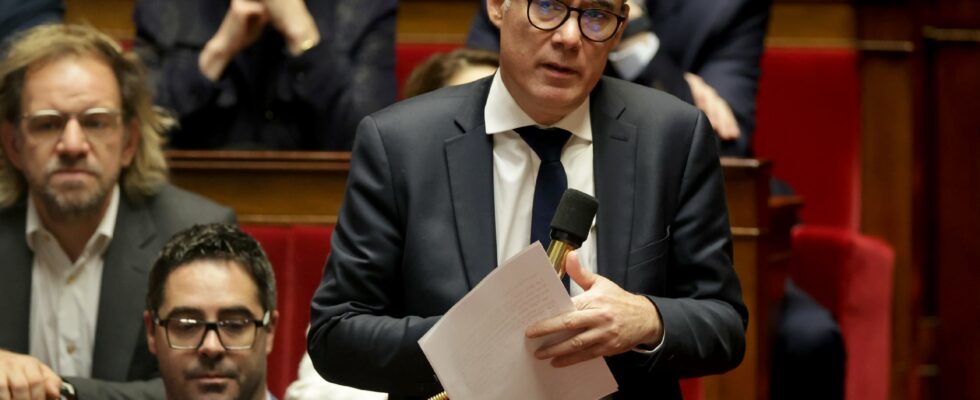The PS announced it: its deputies will not vote the censorship motion posted by rebellious France (LFI) against the Prime Minister, after the government engaged its responsibility on Monday, February 3, on bills Finance (PLF) and social security financing (PLFSS). The socialists, who have promised not to bring down the government around the budgetary procedure, will nevertheless present their own “spontaneous” censorship motion (article 49.2), condemning François Bayrou’s words on “migration submersion”.
“What we say is: yes to a budget for the French, but not to this government,” said in an interview to Release The first secretary of the PS, Olivier Faure. How does this procedure differ, and is it likely to succeed?
Express a disagreement
Article 49.2 of the Constitution allows deputies to file a motion of “spontaneous” censorship, namely, apart from the adoption of any text, provided it is signed by at least one tenth of the deputies (58 out of 577 ). This is the main difference with the motions “provoked” by article 49.3, which allow the assembly to censor a government, after the adoption by the latter of a text without a vote.
Above all, a spontaneous motion aims to express a disagreement of parliamentarians with government policy. The office of the Socialist Party indicated that it was, more precisely, a censorship on the “values of the Republic”, after the words of François Bayrou on “the feeling of migratory submersion”.
Above all symbolic
To be adopted, a motion of censorship, whether triggered or spontaneous, must be adopted by an absolute majority of deputies (289), and within 48 hours after its deposit.
The last time that a spontaneous censure motion resulted was in 1962, against the government of Georges Pompidou, while deputies opposed the project of General de Gaulle to establish the election of the President of the Republic by direct universal suffrage. In response, the Head of State had dissolved the National Assembly, summoned his Prime Minister from the elections and reinstalled, this time, a new majority to have his reform adopted.
The parliamentary procedure initiated by the Socialist Party nevertheless takes on a symbolic character here: it has no chance of succeeding in the absence of the votes of the RN and the Republicans, which do not share the vision of the socialists on migratory issues.
On the left, the non-censure decision of the PS on the act budget still a little more its break with LFI and accentuates doubts about the future of the new Popular Front. “The 49.2 agitated by the PS is a white ball. Everyone knows that he will not be voted by the RN,” reacted the rebellious president of the finance committee Eric Coquerel. The censorship motion filed by LFI will be debated and subject to the vote on Wednesday, February 5. Its almost certain rejection, in the absence of the votes of the PS, will lead to the adoption of the 2025 budget in the National Assembly, before a final adoption without suspense Thursday in the Senate.
